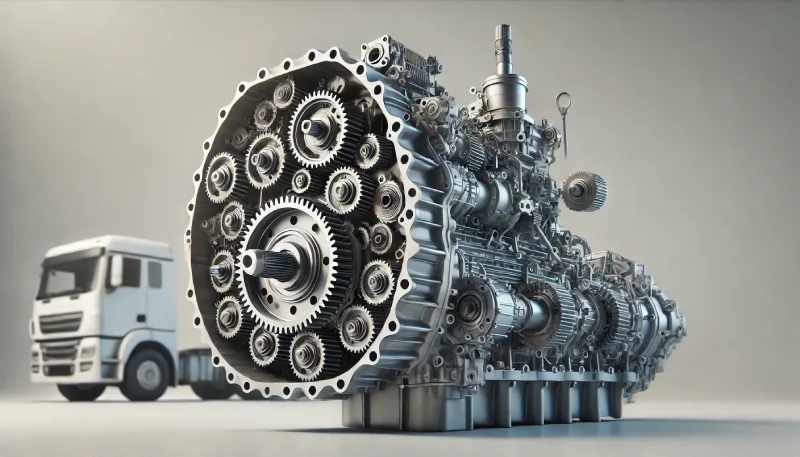Large commercial trucks encounter various mechanical issues, many of which revolve around engine complications. Addressing these issues early can save both time and money. The ability to recognize problems quickly is essential for anyone working with a truck.
Below, the article outlines key points to understand these common problems and offers guidance on how to address them.
Key Points:
- Overheating can lead to serious mechanical damage.
- Fuel system malfunctions are common in older trucks.
- Oil leaks often cause more problems than just staining the ground.
- Poor air filter maintenance causes engine inefficiency.
- Misfires may point to faulty ignition components.
Overheating Issues
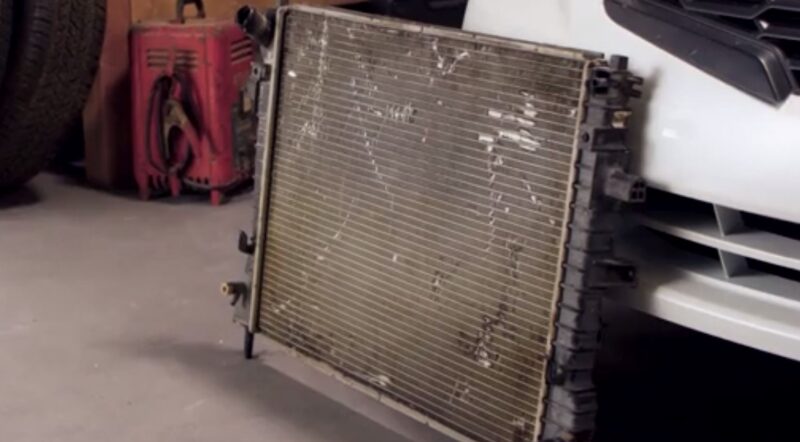
Overheating ranks high among truck problems. High temperatures wear out mechanical parts faster and can cause severe damage if left unchecked. The most frequent reason for overheating stems from poor coolant flow or a faulty radiator. A malfunctioning thermostat often leads to similar issues, blocking coolant circulation at critical moments.
The cooling system needs regular inspection to keep it in optimal shape. Look for low coolant levels, leaks, or debris clogging the radiator. When coolant is running low, you should top it off and check for leaks at hose connections or cracks in the radiator itself.
A truck operating at high temperatures risks destroying internal parts, which often leads to costly replacements or rebuilds. Thermostats, water pumps, and cooling fans should all be reviewed routinely for optimal performance.
For those seeking high-quality parts for their truck, Ever Trust Parts offers a wide selection of truck parts. Regular maintenance and timely repairs, supported by quality components, allow the truck to run efficiently, ensuring fewer headaches down the road.
Fuel System Problems
Low fuel pressure, clogged fuel filters, and defective injectors create major problems, especially in older trucks. These issues can lead to hard starts, rough idling, and overall poor performance.
Fuel filters must be replaced as part of routine maintenance. Neglecting this allows debris and dirt to clog the system. Over time, this can lead to injectors malfunctioning, which severely impacts performance. If starting the truck becomes increasingly difficult or acceleration lacks power, this is often where the issue lies.
Inspecting the fuel system thoroughly is crucial. Start by checking for any clogs or air leaks in the fuel lines. If the fuel filter shows heavy debris buildup, replace it immediately to ensure smooth operation. For persistent issues, consider checking the fuel pump pressure to verify that the system is delivering fuel at the right levels.
Oil Leaks and Their Impact
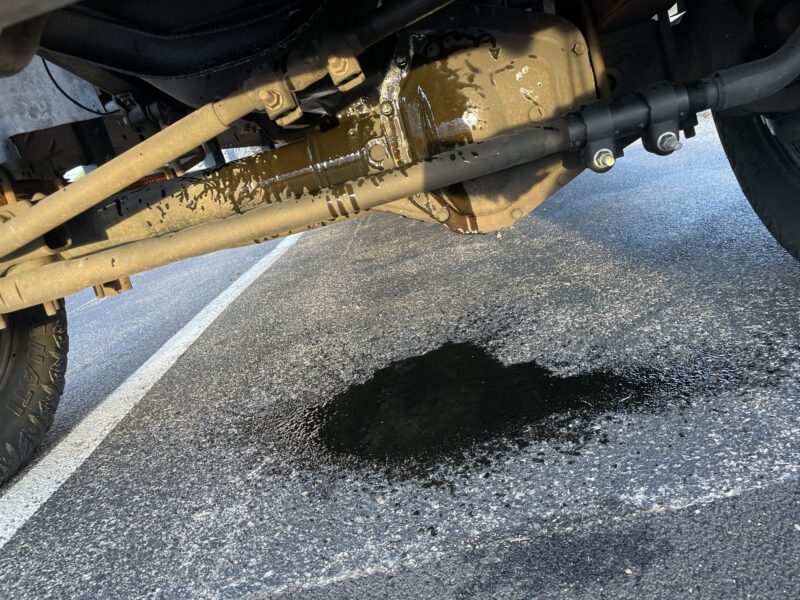
Oil leaks are not just messy; they can result in significant engine complications. Low oil levels cause mechanical parts to grind and wear out faster due to a lack of proper lubrication. The leaks often stem from worn-out seals, loose fittings, or cracks in the oil pan. When oil levels drop, parts overheat and eventually break down, causing greater issues.
Monitoring oil levels consistently is the best preventive measure. Always check for visible signs of leaks around seals, gaskets, or the oil pan. Addressing leaks early avoids costly repair bills, as oil deprivation leads to serious damage. Replacing seals or tightening connections can often fix the problem, but ignoring the leak might require more expensive repairs in the future.
Air Filter Blockage
Air filters serve as the first defense against debris entering the engine. When blocked, they restrict the airflow needed for proper combustion. This results in poor fuel efficiency, reduced power, and even stalling.
Regular inspection and replacement of air filters ensure optimal performance. Filters should be cleaned or replaced regularly to maintain adequate airflow. A dirty air filter not only reduces fuel efficiency but also places extra strain on other parts.
Check the filter housing for dirt or debris accumulation and ensure that no blockages are hindering the air intake system. If the filter shows significant dust or dirt, replace it to restore proper function.
Misfires and Ignition Problems
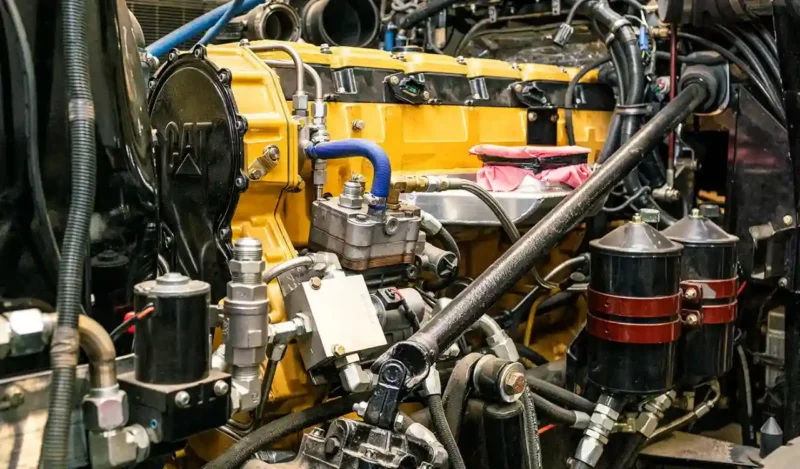
Engine misfires often result from problems in the ignition system. Spark plugs, wires, and ignition coils all play a crucial role in the truck’s operation. Worn spark plugs or failing coils lead to erratic operation, resulting in misfires and a loss of power.
When the ignition system falters, diagnosing the issue promptly ensures the vehicle remains operable. Start by checking spark plugs for wear or damage. Replacing them can quickly resolve misfire issues. Ignition coils, if worn, need replacement as well.
If misfires continue, consider using diagnostic tools to identify trouble codes related to the ignition system. Tackling the issue early prevents further damage to other components.
Electrical Issues
Electrical problems often cause confusion, as they may present in various ways, such as flickering lights, malfunctioning gauges, or intermittent start issues. Battery issues, faulty alternators, or loose connections contribute to electrical malfunctions.
Start with a battery check, ensuring it’s fully charged and free of corrosion. Loose connections should be tightened, and the alternator should be tested to verify it’s producing sufficient voltage.
When dealing with persistent electrical issues, using a multimeter helps pinpoint where the issue lies. Cables, terminals, and fuses should all be inspected for damage or poor connections.
Turbocharger Failures
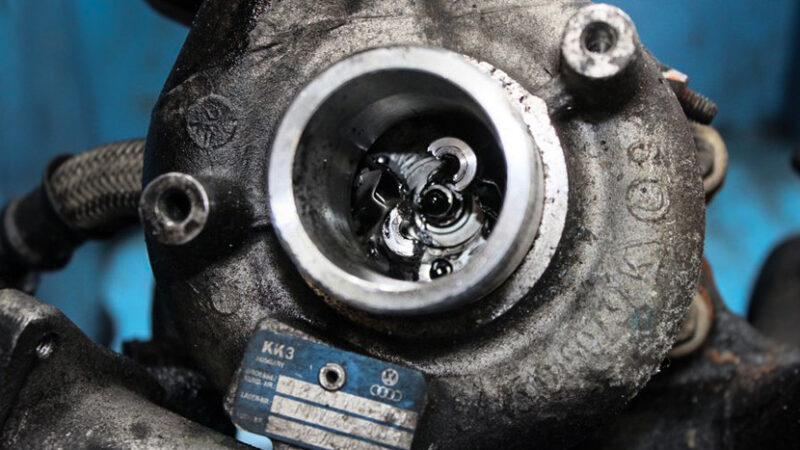
Turbochargers enhance engine performance by forcing more air into the combustion chamber. However, they can fail, leading to reduced power, poor fuel economy, and excessive smoke. Common causes include oil contamination, bearing failure, or air leaks.
Turbocharger failure often results in loud noises, such as whining or screeching, signaling internal component wear. Checking the intake and exhaust side of the turbo for oil leaks or damage helps to identify any issues early.
Routine maintenance, such as ensuring clean oil and proper filtration, prevents turbocharger complications. Replacing a damaged turbocharger often requires professional assistance.
Transmission Problems
Although the transmission isn’t directly part of the engine, its complications often stem from powertrain issues. Slipping gears, difficulty shifting, or sudden power loss points to transmission trouble. Fluid levels or contamination often cause the problem, but it can also be a sign of more serious issues.
Transmission fluid should always be clean and at the right level. Low or dirty fluid can damage internal parts. If gears slip or the vehicle struggles to shift, immediate inspection of the transmission fluid is necessary. For automatic transmissions, sensors or control modules might also cause similar issues.
Preventive Maintenance
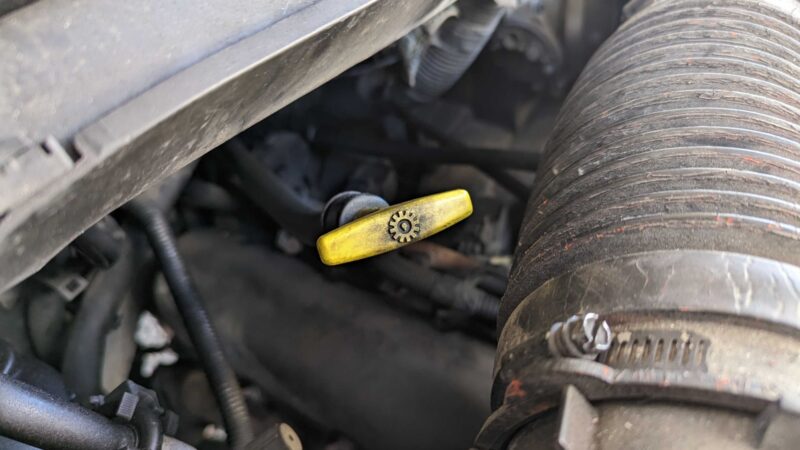
Keeping a truck in top condition depends heavily on preventive maintenance. Regular inspection and replacement of key parts prevent costly failures. Monitoring fluid levels, checking for leaks, and replacing worn-out components ensure reliable operation.
Many avoidable problems arise due to neglect. Sticking to a strict maintenance schedule mitigates the risk of sudden breakdowns. Regular oil changes, fuel system inspections, and keeping an eye on air filters all contribute to the longevity of the truck.
Conclusion
Maintaining large commercial trucks requires careful attention to several components, many of which often experience wear and tear. Overheating, oil leaks, fuel system malfunctions, and air filter issues rank among the most common causes of engine problems. Addressing them early through proper troubleshooting and maintenance ensures a long life for the truck. Routine inspections are vital to avoiding expensive repairs and keeping the vehicle in prime condition.
Related Posts:
- 8 Most Common Causes of High Blood Pressure - 2024 Guide
- Problems Truck Drivers Have With Truck Dispatch
- 7 Common Motorcycle Crashes and How to Avoid Them
- 4 Common Cryptocurrency-Related Stock Scams And How…
- 7 Common Crude Oil Trading Mistakes & How To Avoid Them
- Erectile Dysfunction (Impotence): Causes, Symptoms,…

